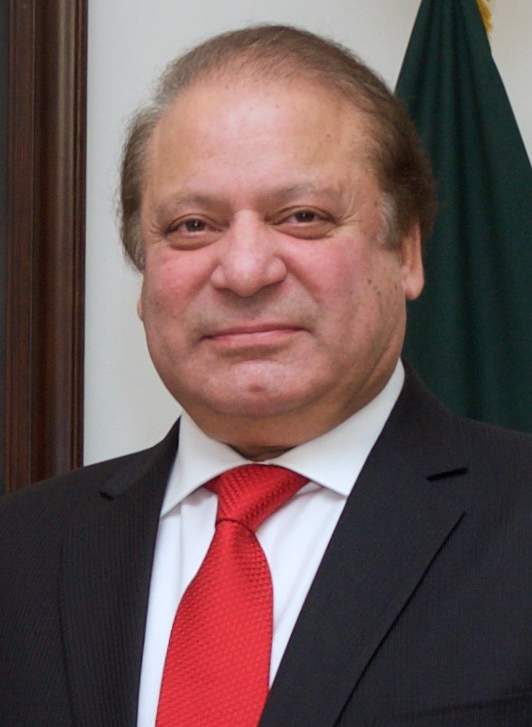|
Chaudhry Muhammad Asad Ullah
Chaudhry Muhammad Asad Ullah is a Pakistani politician who was a Member of the Provincial Assembly of the Punjab, from 2008 to May 2018. Early life and education He was born on 4 June 1968 in Jalalpur Bhattian. He has a degree of Bachelor of Law which he received in 1994 from University of the Punjab. Political career He was elected to the Provincial Assembly of the Punjab as a candidate of Pakistan Muslim League (N) (PML-N) from Constituency PP-106 (Hafizabad-II) in the 2008 Pakistani general election. He received 40,072 votes and defeated Shaukat Ali Bhatti, a candidate of Pakistan Muslim League (Q) (PML-Q). He was re-elected to the Provincial Assembly of the Punjab as a candidate of PML-N from Constituency PP-106 (Hafizabad-II) in the 2013 Pakistani general election General elections were held in Pakistan on Saturday 11 May 2013 to elect the members of the List of members of the 14th National Assembly of Pakistan, 14th National Assembly of Pakistan, National Assembly and ... [...More Info...] [...Related Items...] OR: [Wikipedia] [Google] [Baidu] |
Provincial Assembly Of The Punjab
The Provincial Assembly of the Punjab, also known as the Punjab Assembly, is the supreme legislative body of Punjab, a province of Pakistan. It convenes at the Assembly Building in Lahore, the capital of Punjab. It is a unicameral legislature of elected representatives; and was established under Article 106 of the Constitution of Pakistan, having a total of 371 seats, with 297 general seats, 66 seats reserved for women and 8 reserved for non-Muslims. Assembly building The two-story Assembly Chamber, residential hostels, and expansive lawns cover on the Shahrah-e-Quaid-Azam (the Mall). After it was completed in 1935, the Assembly Chamber housed the Assembly for the Punjab Province. After the division of Punjab and the emergence of Pakistan, the building became the administrative center of Pakistani Punjab. New Assembly Building The new Assembly Hall is constructed positioned between the old and the new Assembly buildings. It has a capacity of 500 seats in the main hall and ... [...More Info...] [...Related Items...] OR: [Wikipedia] [Google] [Baidu] |
Jalalpur Bhattian
Jalalpur Bhattian (), is a city in the Hafizabad District of Pakistan. Jalalpur Bhattian is located southeast of the Chenab River, by road northeast of Faisalabad Faisalabad, formerly known as Lyallpur, is the List of cities in Punjab, Pakistan by population, second-largest city and primary List of cities in Punjab, Pakistan by population, industrial center of the Pakistani province of Punjab, Pakistan .... References {{Neighbourhoods of Hafizabad Populated places in Hafizabad District Cities and towns in Punjab, Pakistan ... [...More Info...] [...Related Items...] OR: [Wikipedia] [Google] [Baidu] |
Pakistan Muslim League (N)
The Pakistan Muslim League (N) or (PML(N)) is a Centre-right politics, centre-right, Conservatism in Pakistan, conservative political party in Pakistan. It is currently the third-largest party in the Senate of Pakistan, Senate and the largest in the National Assembly of Pakistan, National Assembly. The party was founded in 1993, when a number of prominent Conservatism in Pakistan, conservative politicians in the country joined hands after the dissolution of Islami Jamhoori Ittehad, Islamic Democratic Alliance, under the leadership of former Prime Minister of Pakistan, Prime Minister Nawaz Sharif. The Party platform, party's platform is generally Conservatism in Pakistan, conservative, which involves supporting free markets, deregulation, Tax cut, lower taxes and Privatization, private ownership. Although the party initially supported social conservatism, in recent years, the party's political ideology and platform has become more Liberal conservatism, liberally conservative. A ... [...More Info...] [...Related Items...] OR: [Wikipedia] [Google] [Baidu] |
University Of The Punjab
The University of the Punjab (UoP) is a public university, public research university in Lahore, Punjab, Pakistan, Punjab, Pakistan. Founded in 1882, its international influence has made it one of the most prestigious universities in South Asia; being the oldest and largest public sector one in the wider Punjab, Punjab region, as well as in Pakistan. The first meeting of the University's Senate was on 14 October 1882 at Shimla, Simla, which marked the formal establishment of the university. Punjab University was the fourth university to be established by the British colonial authorities in the Indian subcontinent; the first three universities were established in other parts of British India. There are 45,678 students (27,907 morning students, 16,552 evening students and 1,219 diploma students). The university has 19 faculties of which there are 138 academic departments, research centres, and institutes. Punjab University has ranked first among large-sized multiple faculty uni ... [...More Info...] [...Related Items...] OR: [Wikipedia] [Google] [Baidu] |
2008 Pakistani General Election
General elections were held in Pakistan on 18 February 2008 to elect members of the 13th National Assembly and the four Provincial Assemblies. On 3 November 2007 President Pervez Musharraf enacted a state of emergency; elections were initially postponed indefinitely. However, it was later stated they would be held as planned. On 8 November 2007 Musharraf announced that the elections would be held by 15 February 2008, before suggesting a date of 8 January. Following the assassination of former Prime Minister Benazir Bhutto in December 2007, the Election Commission conducted a meeting and announced that 8 January was no longer a feasible date and the elections would be held on 18 February. The elections saw the resurgence of the Pakistan Peoples Party (PPP) and Pakistan Muslim League (N) (PML-N), as they emerged as the two largest parties in the National Assembly. Following Bhutto's death, the PPP had come under the leadership of her nineteen-year-old son Bilawal. However, t ... [...More Info...] [...Related Items...] OR: [Wikipedia] [Google] [Baidu] |
Pakistan Muslim League (Q)
The Pakistan Muslim League (Quaid e Azam Group) ; ''Pākistān Muslim Līg (Qāf)'', Acronyms: PML(Q), PML-Q, PMLQ, "Q League" (officially registered as the Pakistan Muslim League) is a political party in Pakistan. As of the 2024 parliamentary election, it has a representation of five seats. It previously served as an ally of former prime minister Raja Pervez Ashraf's government, and led a joint election campaign in 2013 alongside Pakistan Peoples Party (PPP) in Punjab and Balochistan provinces against its rival Pakistan Muslim League (N), a fiscally conservative and centre-right force. Its leadership and members were once part of the Pakistan Muslim League (Nawaz) presided by former prime minister Nawaz Sharif. After the 1997 general elections, political differences arose that ultimately led to the creation of a faction inside the party. The dissidents, led by Shujaat Hussain, called for strong and vocal support for the 1999 military coup d'état staged and led by then- ... [...More Info...] [...Related Items...] OR: [Wikipedia] [Google] [Baidu] |
2013 Pakistani General Election
General elections were held in Pakistan on Saturday 11 May 2013 to elect the members of the List of members of the 14th National Assembly of Pakistan, 14th National Assembly of Pakistan, National Assembly and the four Subdivisions of Pakistan, Provincial Assemblies. The three major parties were the Pakistan Muslim League (N) (PML-N) led by Nawaz Sharif, the Pakistan People's Party (PPP) led by President of Pakistan, President Asif Ali Zardari and the Pakistan Tehreek-e-Insaf (PTI) led by Imran Khan. Prior to the elections, the ruling PPP formed an alliance with the Pakistan Muslim League (Q) and Awami National Party, while the main opposition party, the PML-N allied with the Pakistan Muslim League (F) and Baloch parties. The PTI led by cricketer-turned-politician Imran Khan, also emerged as a key-player. The result was a hung parliament, with the PML-N receiving the most votes and winning the most seats, but falling six seats short of a majority. However, following the elections, ... [...More Info...] [...Related Items...] OR: [Wikipedia] [Google] [Baidu] |
Living People
Purpose: Because living persons may suffer personal harm from inappropriate information, we should watch their articles carefully. By adding an article to this category, it marks them with a notice about sources whenever someone tries to edit them, to remind them of WP:BLP (biographies of living persons) policy that these articles must maintain a neutral point of view, maintain factual accuracy, and be properly sourced. Recent changes to these articles are listed on Special:RecentChangesLinked/Living people. Organization: This category should not be sub-categorized. Entries are generally sorted by family name In many societies, a surname, family name, or last name is the mostly hereditary portion of one's personal name that indicates one's family. It is typically combined with a given name to form the full name of a person, although several give .... Maintenance: Individuals of advanced age (over 90), for whom there has been no new documentation in the last ten ... [...More Info...] [...Related Items...] OR: [Wikipedia] [Google] [Baidu] |
Punjab MPAs 2013–2018
Punjab (; ; also Romanization, romanised as Panjāb or Panj-Āb) is a geopolitical, Punjabi culture, cultural, and historical region in South Asia. It is located in the Northwestern South Asia, northwestern part of the Indian subcontinent, comprising areas of modern-day eastern Pakistan and Northwest India, northwestern India. Pakistan's major cities in Punjab are Lahore, Faisalabad, Rawalpindi, Gujranwala, Multan, Sialkot, and Bahawalpur, while India’s are Ludhiana, Amritsar, Chandigarh, Jalandhar, Patiala, Mohali, and Bathinda. Punjab grew out of the settlements along the five rivers, which served as an important route to the Near East as early as the ancient Indus Valley Civilisation, Indus Valley civilization, dating back to , followed by Indo-Aryan migration, migrations of the Indo-Aryan peoples. Agriculture has been the chief economic feature of the Punjab and formed the foundation of Punjabi culture. The Punjab emerged as an important agricultural region, especially ... [...More Info...] [...Related Items...] OR: [Wikipedia] [Google] [Baidu] |
1968 Births
Events January–February * January 1968, January – The I'm Backing Britain, I'm Backing Britain campaign starts spontaneously. * January 5 – Prague Spring: Alexander Dubček is chosen as leader of the Communist Party of Czechoslovakia. * January 10 – John Gorton is sworn in as 19th Prime Minister of Australia, taking over from John McEwen after being 1968 Liberal Party of Australia leadership election, elected leader of the Liberal Party of Australia, Liberal Party the previous day, following the disappearance of Harold Holt. Gorton becomes the only Australian Senate, Senator to become Prime Minister, though he immediately transfers to the Australian House of Representatives, House of Representatives through the 1968 Higgins by-election in Holt's vacant seat. * January 15 – The 1968 Belice earthquake in Sicily kills 380 and injures around 1,000. * January 21 ** Vietnam War: Battle of Khe Sanh – One of the most publicized and controversial battles of the ... [...More Info...] [...Related Items...] OR: [Wikipedia] [Google] [Baidu] |
Pakistan Muslim League (N) Politicians
The Pakistan Muslim League (; known as PML), is the name of several different Pakistani political parties that have dominated the centre-right platform in the country. The ''Muslim League'' (the original successor of the All-India Muslim League) was the party of Pakistan's founders. However, it faced multiple fractures soon after Pakistan gained independence in 1947. It vanished in the 1970s. Its revival began in the mid-1980s and today several parties in Pakistan are named Muslim League. History First phase (1962–1969) The first "Pakistan" Muslim League was founded by President Ayub Khan in 1962 as a successor to the original Muslim League. Just a short period after its foundation, the party broke into two factions: Convention Muslim League that supported the President and the new Constitution, and the Council Muslim League, that opposed the new Constitution, denouncing it as undemocratic that made the Presidency an autocratic position. Following President Ayub's resig ... [...More Info...] [...Related Items...] OR: [Wikipedia] [Google] [Baidu] |



